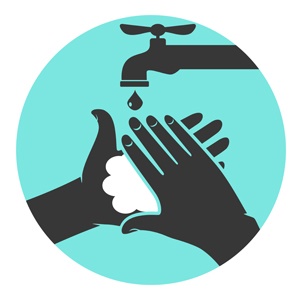
Proper hand washing is the single most important preventive measure that South Africans can take to improve their health.
This is the message from public health specialist Dr Lehlohonolo Majake-Mogoba as the world observes Global Handwashing Day, which is marked annually on October 15.
Read: Your health is in your hands
"When we talk about public health intervention beyond policies and legislature, we talk about the basic things that communities of any socioeconomic status can do on their own to improve their health and that of their families," she told Health24.
"With the improved access to water we have in SA, making use of this scarce resource through efficient hand washing can certainly reduce unnecessary disease and thereby improve the health of the public."
Majake-Mogoba explained that during the Ebola outbreak one of the first public health interventions in the most affected areas was to have containers with chlorinated water to wash hands, and also basins for the feet.
"It may have seemed like a simple measure but it was key in preventing the spread of disease over and above other protective gear."
Read: How can flu be prevented?
An alarming survey by the Global Hygiene Council revealed that although South African adults worry about infectious diseases, they do not wash their hands properly.
The 2013 study found that only one out of every 20 people around the world washes their hands properly, adding that 83 percent of adults say they intend to wash their hands every time they go to the toilet, but just 68 percent do this with soap and water.
Majake-Mogoba said that keeping our hands clean is one of the most important steps we can take to help avoid spreading germs and getting sick.
"We are in constant contact with various bacteria knowingly, such as after the use of a bathroom, or unknowingly such as when we touch innate objects that may be contaminated both in our homes and in public facilities."
This makes it vital to wash our hands prior to preparing or ingesting any food to reduce the possibility of ingesting the bacteria, she said.
"Ingested bacteria leads to infections, and depending on the type of bacteria that is ingested, the outcome may be mild, such basic gastro, that can be treated with antibiotics, or you may develop severe dehydration or death."
Many feacal-oral infectious diseases that cause gastroenteritis, better known as diarrhoea, can be prevented by proper hand hygiene, said Majake-Mogoba.
These also include E.coli, Hepatitis A infection, Campylobacter and Salmonella.
"South Africans should get into the habit of washing their hands at all times, especially after the use of ablution facilities and prior to food preparation and consumption. This also applies when handling food for children or the elderly.
"We need to get into the habit of thinking that our hands are tools that are always in use and should be clean at all times," she said.
You need to always wash your hands:
- After using the toilet
- After changing a child’s nappy
- Before and after handling food
- Before putting in or taking out your contact lenses
- After touching commonly used surfaces or items
- After working in the garden
- after touching animals
- After taking care of sick people
- after blowing your nose, coughing or sneezing into your hands
- After taking out the garbage, touching household or garden chemical, or soiled shoes
Health really begins with us, the ordinary people, said Majake-Mogoba.
"Undertaking basic practices such as watching what we eat, exercising, avoiding risky behaviour and unhealthy social practices (smoking, using substances and heavy alcohol use), and also washing our hands, and continuous community education on such practices is far more efficient than investing in state of the art hospitals that treat what we could have easily prevented."
She also pointed out the importance of hand hygiene for all medical practitioners, including the cooks and domestic helpers at hospitals.
"Patients can develop hospital-acquired infections as a result of being hospitalised if staff do not wash their hands correctly."
Majake-Mogoba said new quality health norms and standards have been created by the quality watchdog in health, the Office of Health Standards Compliance, in South Africa to look at ways of mitigating such unfortunate occurrences.
Here are some hand-washing tips:
1. Wet your hands with water.
2. Lather your wet hands with soap.
3. Rub your hands palm to palm.
4. Make sure you interlace your fingers while you wash your hands.
5. Scrub under your fingernails using your palms.
6. Right palm over left hand and vice versa.
7. Rotational rubbing of left thumb clasped in right palm and vice versa.
8. Rinse hands with water.
9. Dry thoroughly with a single-use towel.
Also read:
Miracle Cape plant could replace antibiotics




 Publications
Publications
 Partners
Partners














